
10 Things We Found to be Very Much Better in Sicily
America is well-known as the land of innovation, but we’ve found here in Sicily a few things that seem to be of much more superior design.
Cos’è Molto Straordinario
While America is well-known as the land of innovation, I thought it’d be fun to share a few things we’ve found here in Sicily, and Europe in general, that seem to be of so much better design or purpose than in the U.S. This isn’t to say one is necessarily better than the other. Okay, it is. It says so right there in the title, but what I guess I should add is that my only consideration here is from the user’s point of view, not the designer’s. After all, as Thomas Edison once said: “The value of an idea lies in the using of it.”
I look forward to hearing your comments or own additions (please do share!). There are many things I love here that didn’t make the list, things like gelato, fish, cheese, wine…well, now that I see it written, those all fall under food, which, please, this is after all Sicily.
So, anyway…shall we?
Windows
I know. Who gives a second thought to windows? Every place I’ve ever lived or worked has several of them and while the view may vary from grim to astonishing, what really makes these in Sicily stand out is this brilliant, little feature:
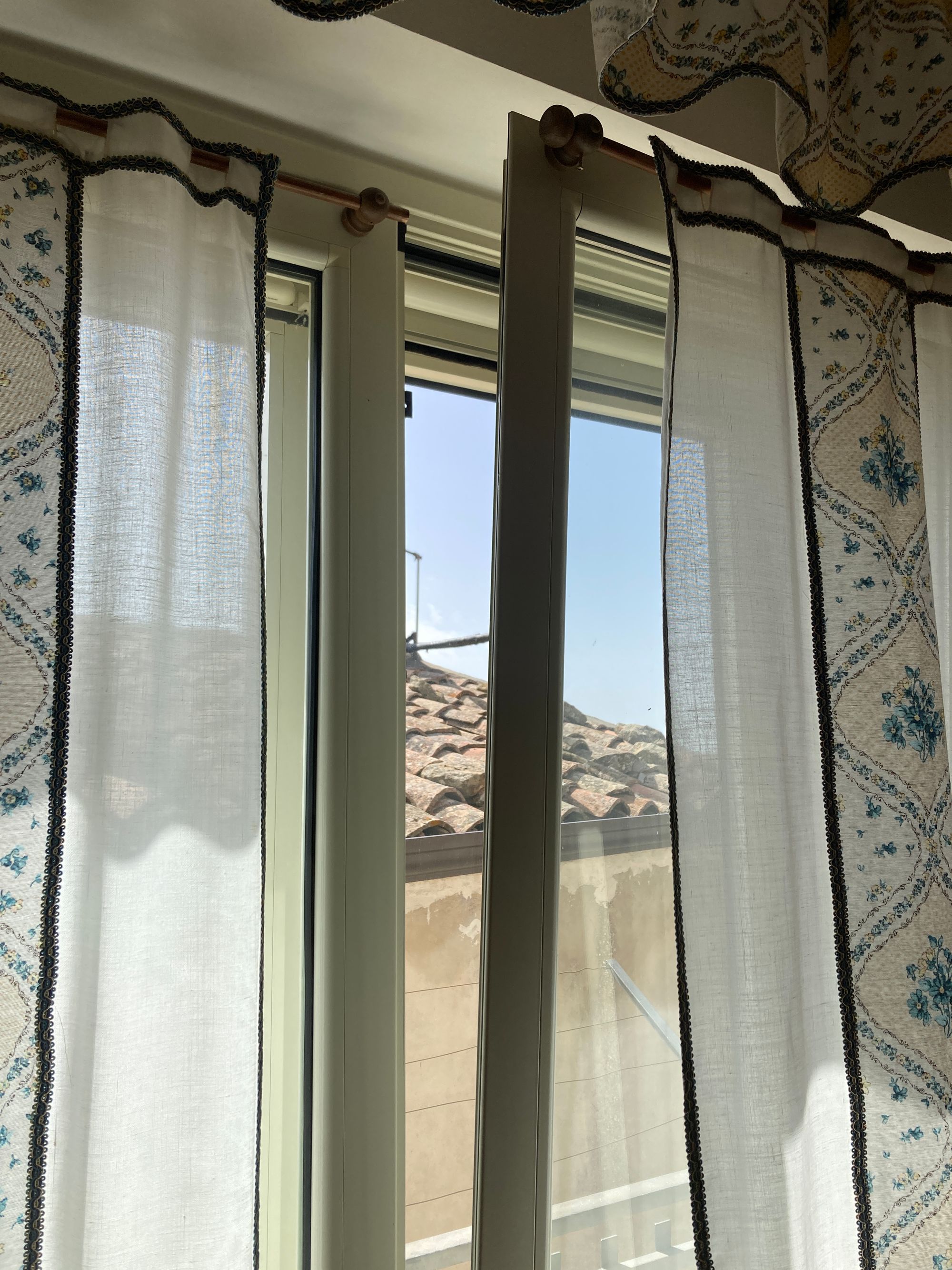
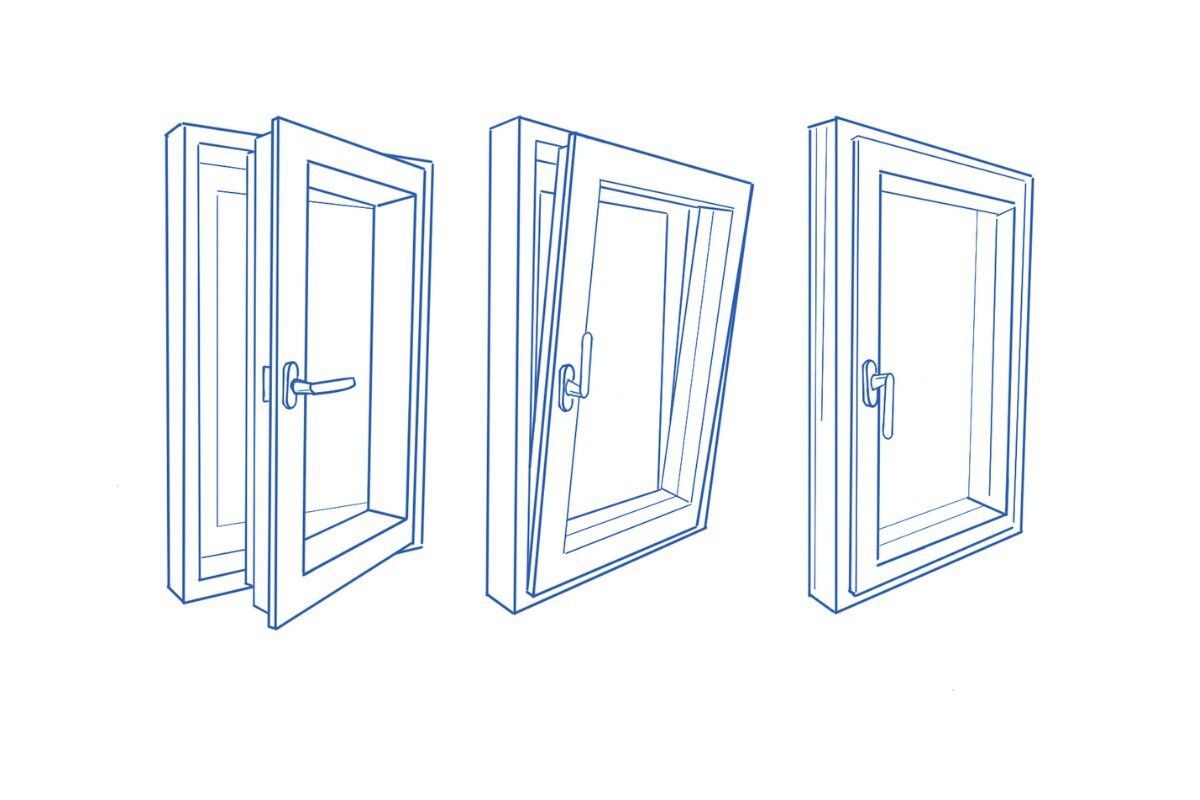
Common throughout Europe since the mid-1950s, these tilt and turn windows (and doors), as they’re called, not only provide greater visibility to the world outside, but also improve ventilation, thermal efficiency, and better security to prevent someone’s forced entry. And, apparently, they last forever. So, with all the bad happening on the planet these days, you’d think we could finally turn off the A/C and simply demand that our windows do windowing better.
Doors
Really? Another common accoutrement of buildings? But hear me out. This place has centuries of building things under its belt. Besides, it’s not so much the construction of the door—these come in the same rectangular format as found everywhere in the world—but the manner in which it operates. Picture this, you’re upstairs and expecting a visitor (shocking, I know. If it helps, imagine it’s the holidays). You’re occupied—granted it’s probably with some unwanted chore like snaking a blocked toilet, which, come to think of it, you really wouldn’t mind putting it off for the more fun-loving time with a friend, but also you’d really like to get it out of the way and furthermore, you’ve already been up and down the stairs a dozen times, just that morning, in trying to locate the damn snake, so the thought of trudging down those steps one more time, even for a guest, sounds excruciating. No problem. Here, there is an intercom attached the doorbell and when it buzzes you answer, generally speaking from whichever floor of the structure you might find yourself. The guest confirms their identity, maybe you share a few kind words, then presto, you push a button on your end of the intercom and the door opens, allowing your guest to enter. If that person happens to be a plumber, even better.
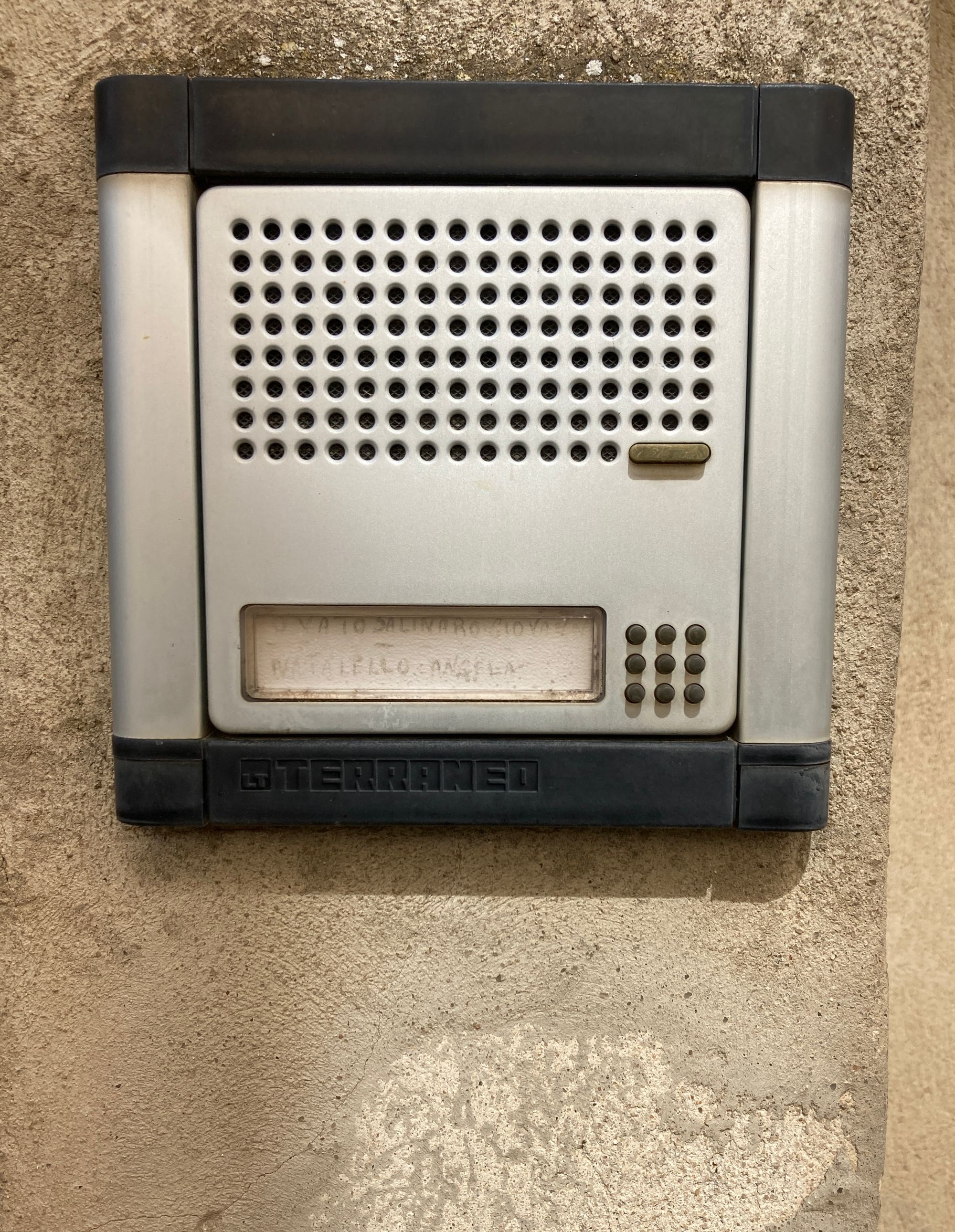
Squares
Not the geometric shape, but the town square, known here as piazza, of which no town in Sicily, or Italy in general, would have just one, but many located throughout wherever people work and live. This one really shocks me. Why a communal gathering place wasn’t part of the initial, architectural design of every neighborhood, every city block, every shopping or office complex, I simply can’t fathom. It’s like the creators of these spaces, even those most recently built, were in cahoots with…I don’t know who, someone rich and in power most likely, to actually keep people from gathering. Which again, now that I see it written, makes complete sense. When people gather, they talk. When they talk, they talk about their lives, and the more likely they talk about their lives the more likely they are to come to the conclusion they share the same damn fate, which is—unless you’re that creator or the powerful someone—to be trapped in pursuit of a dream that doesn’t really exist.
So, I take it back, I’m not shocked. Now, I’m pissed.
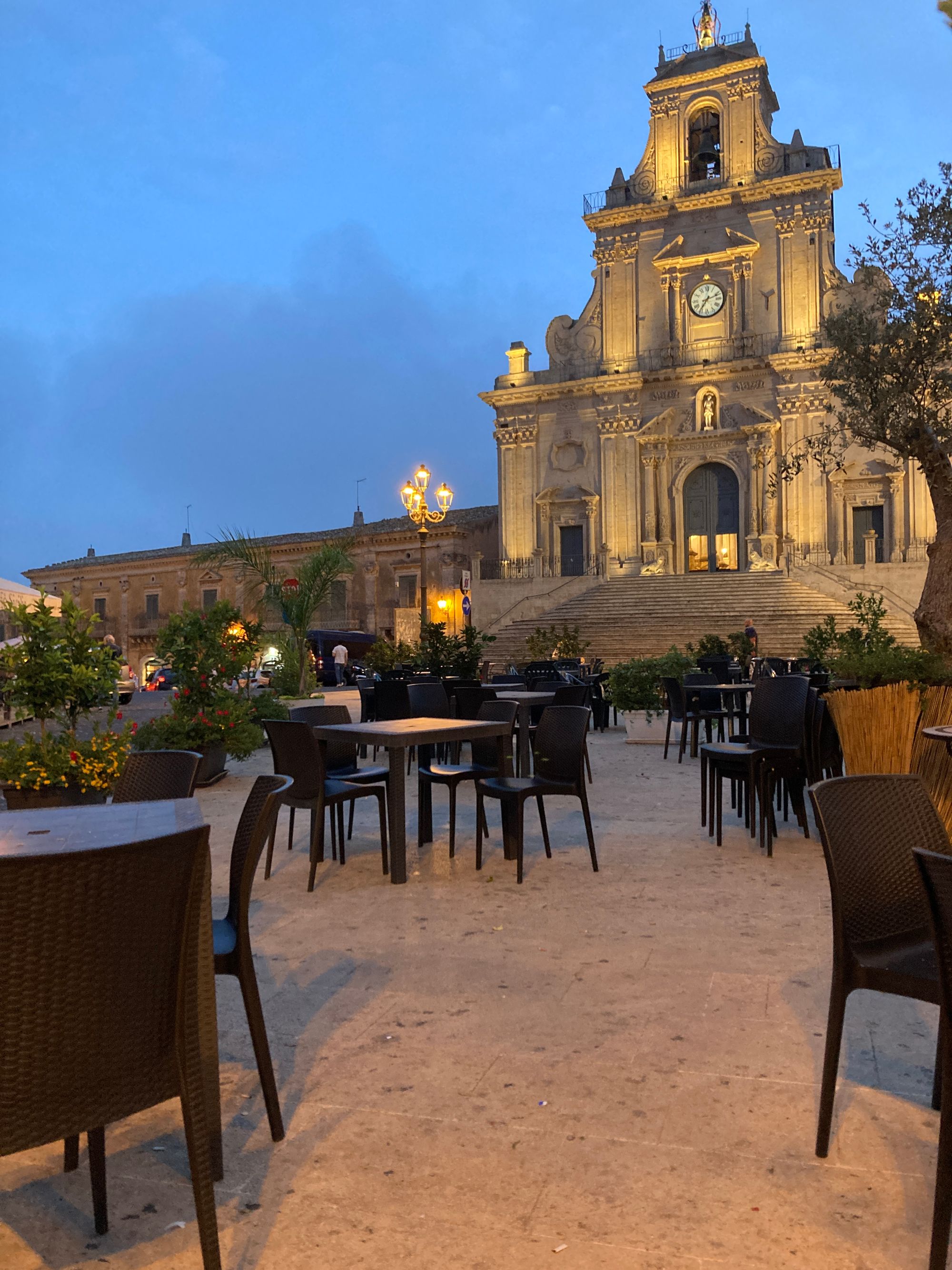
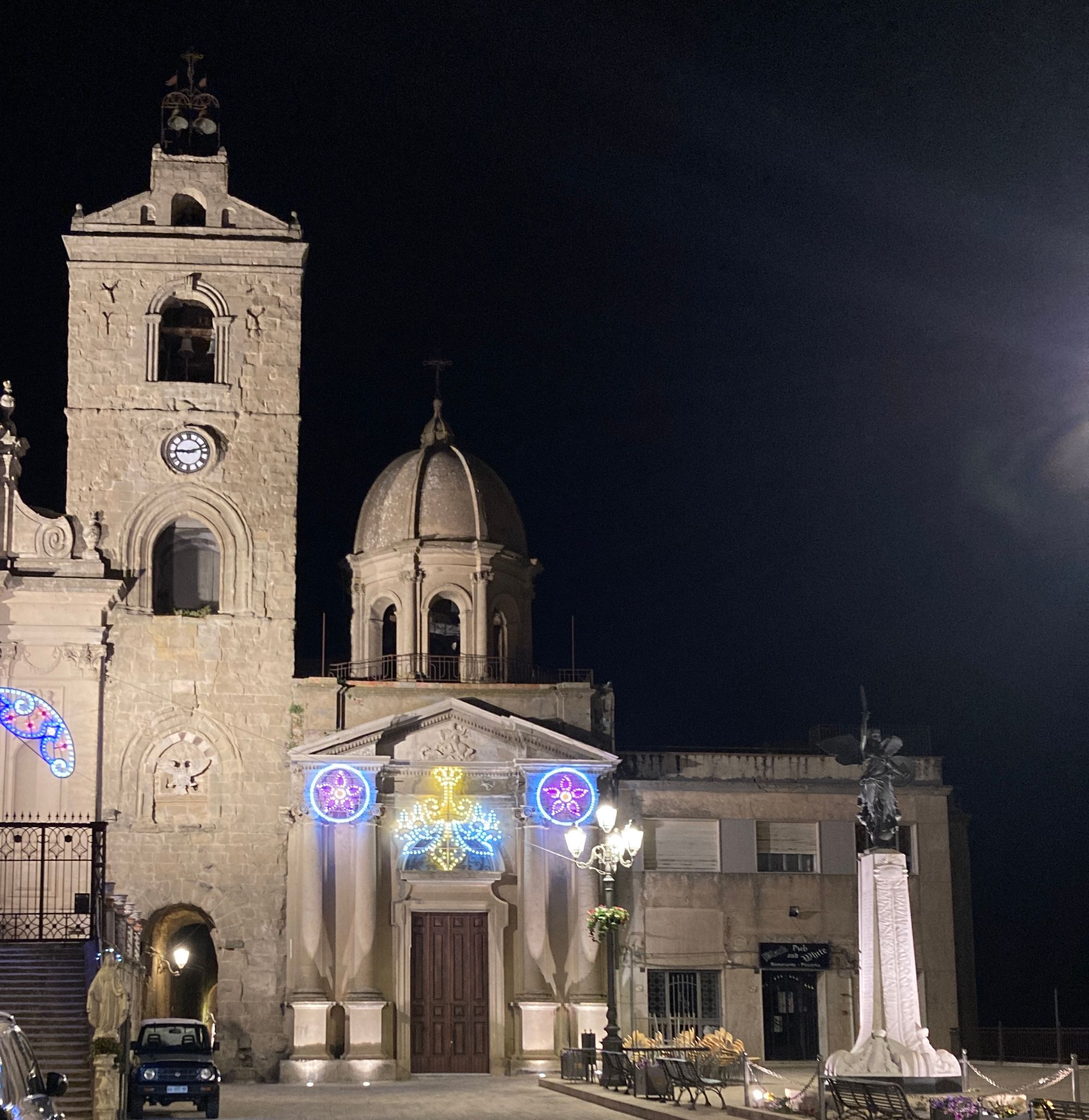
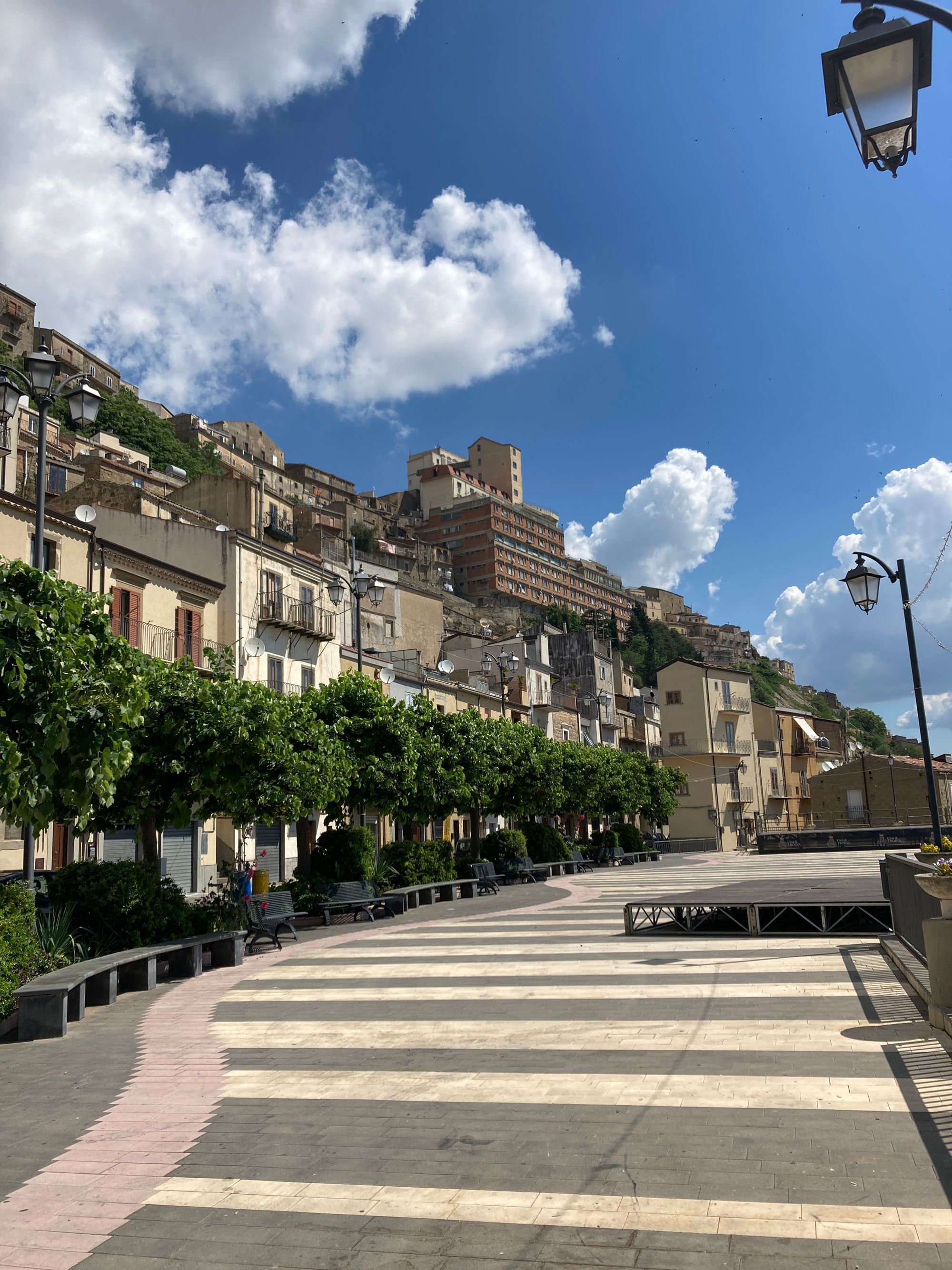
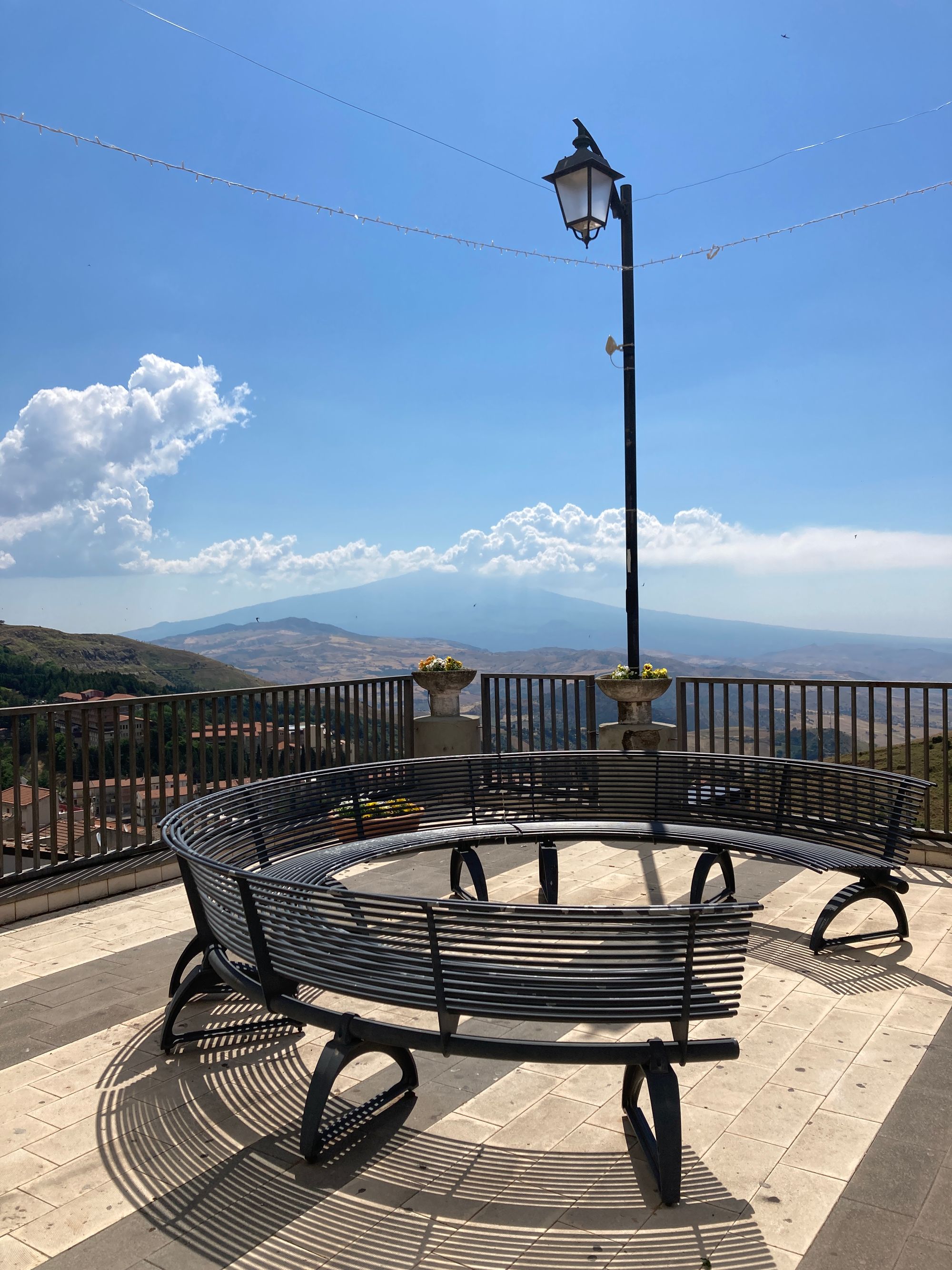
Roundabouts
Another design issue. Troina, the town of 10,000 in which we live in Sicily, has exactly five traffic lights. Four of those are to control the direction of flow on one way streets. The fifth one is the only one put there because there are crossing streets. Additionally, on our drive to the airport, over an hour away, passing through at least three other towns, one of which is Catania, the second largest town on this island of five million people, we encounter precisely zero traffic lights. Traffic flow on almost every road you can drive here is managed with roundabouts. And while driving in general would not appear on any list of Things Done Better in Sicily, there becomes after some, harrowing, personal experience, a kind of order to the chaos.
I liken it this way, in America we communicate our intentions with the car with turn signals (or our intentions are conveyed for us through stop lights). Here, it’s mostly with eye contact and other nonverbal cues. For instance, if I’m approaching an intersection at the same time another car is approaching the same intersection, we slow, share a look with one another, in which we each can somehow draw the conclusion of which of us is in more of a hurry, and with a finger wave that person is allowed to go first. Easy. We each move along our way. Really, the only problem is with vespa drivers, who do exactly and only as they please. Honestly, those assholes think they’re exempt from every common traffic courtesy.
Pedestrian paths
You’d think by this list we spend all our time going places. We don’t. Actually, I take that back, we do an often lot of errand running. At least every other day. Sometimes twice a day. For like bread, gelato, an aperitivo or dinner with friends. Things, you know, that make leaving the house totally worth it. As you just read, driving can be an adventure, but walking should not be. So all over town are paths for pedestrians. I mean all over, even in the narrowest of places.
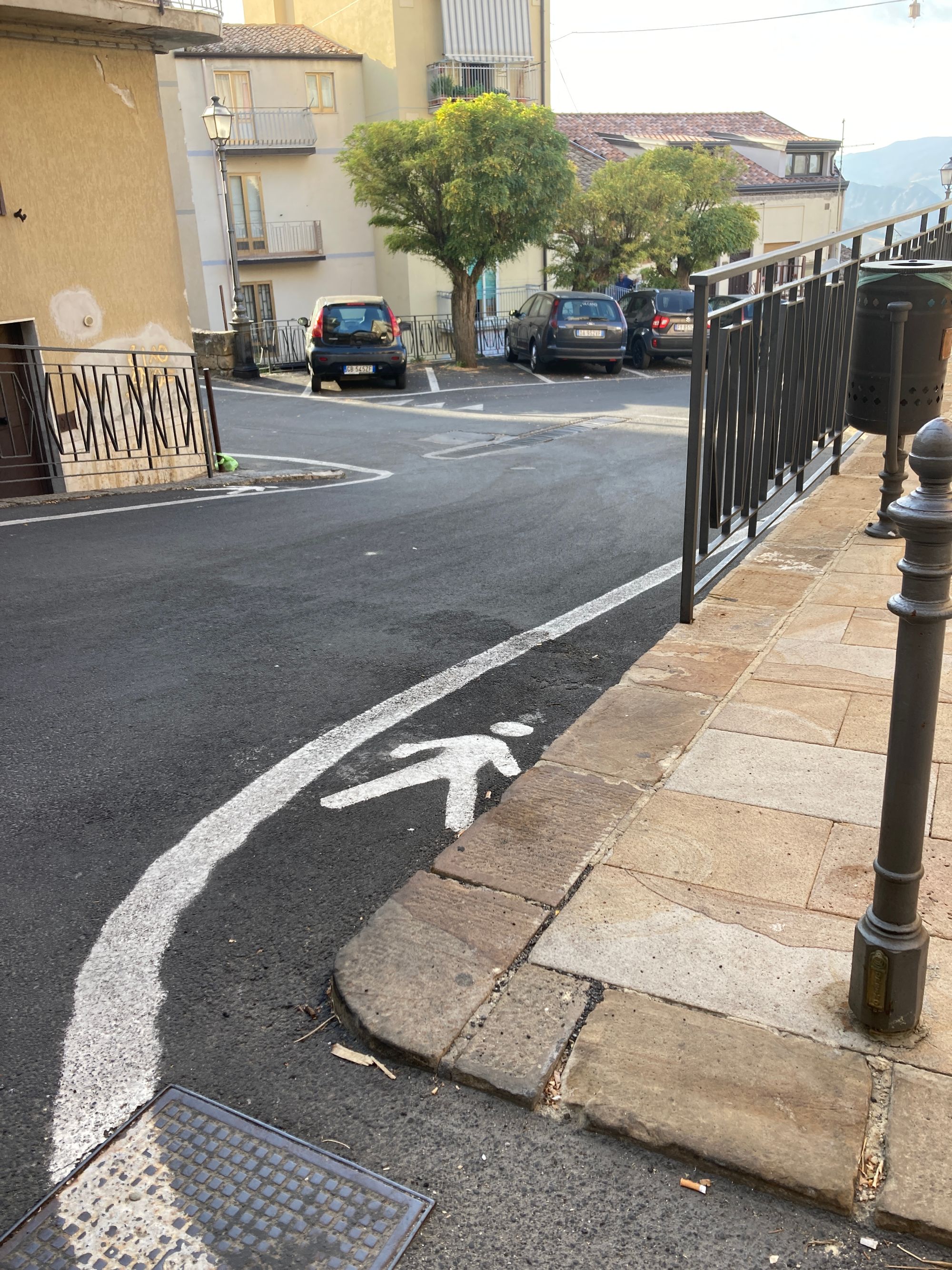
Bakeries (because, of course). And just food, in general
As you probably know by now, we used to own a bakery in a small town of roughly the same population as our home here in Troina (find the heart, if you’re curious!) with around 10,000 people. This photo shows the number of bread stores, or panifici, as highlighted with yellow stars.
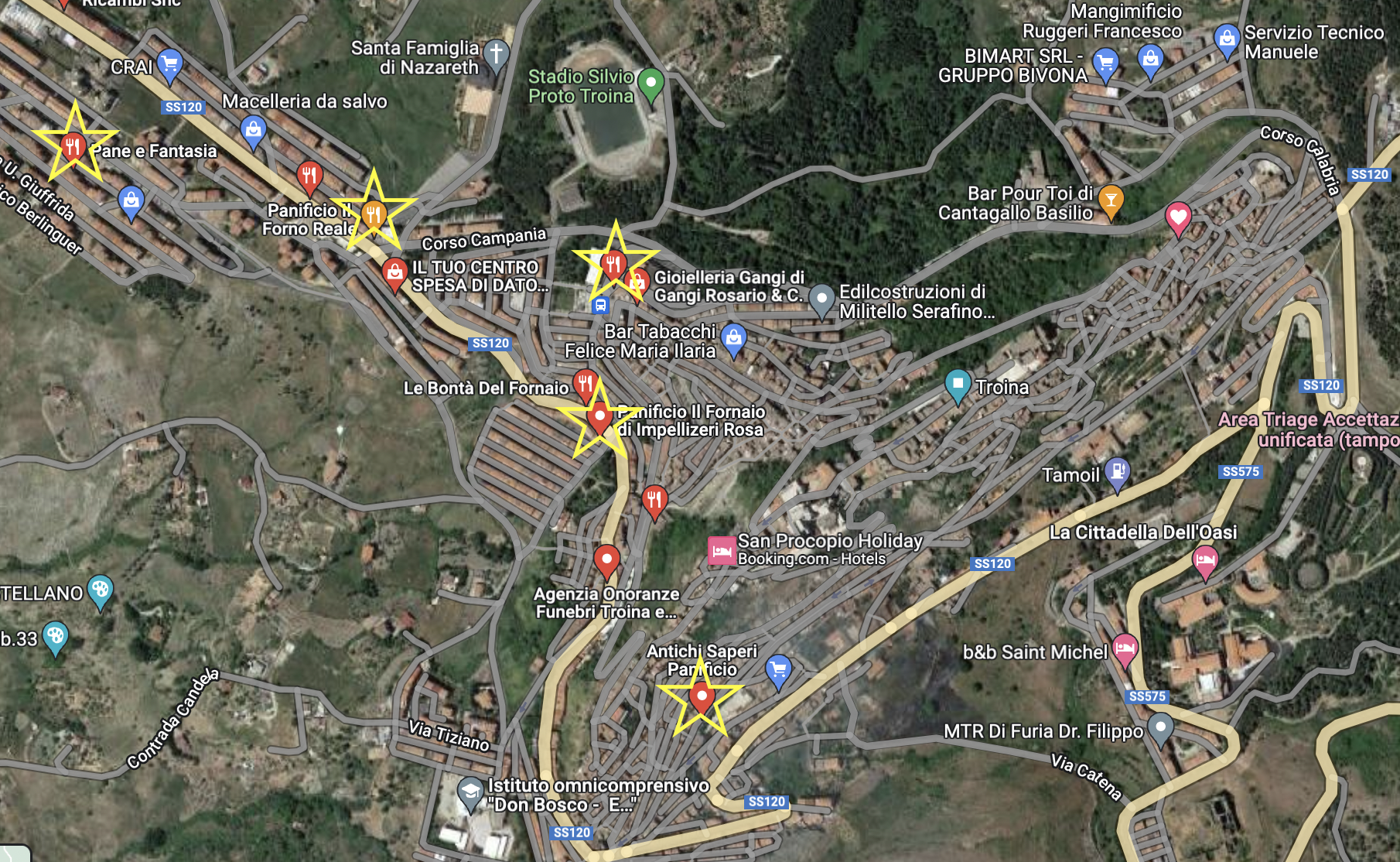
As you can see there are five and while we’ve enjoyed a loaf or two from each of them and do have our favorites, each of the bakeries prides themself on using the best, most local ingredients they can find. Often, their search, as was ours at Alimentaire and many of the restaurants we find here, a self-imposed limit of no more than a few miles of their location. Here, that’s not just lip service, intended to trick or mislead. When they say local in Sicily, they mean local. And by local they mean within a kilometer or two of their location (here is an excellent article on the Zero Kilometer movement, I encourage you to check it out and see how it might benefit your own community! Just reading it will inspire you, I promise. (More to say about this in an upcoming post of which Noam Chomsky might even be proud).
“We need not stride resolutely towards catastrophe, merely because those are the marching orders.”
— Noam Chomsky
All this is made possible, of course, because of the volume of sales, which in turn happens because of their community of loyal supporters, which, we, too, also enjoyed, but for a slightly different reason. This second photo shows the bakeries in Tarboro, which I hope no one there will take this as a complaint—we loved being the town bakery and met so many amazing, thoughtful, kind people—but it does illustrate one of the biggest problems, as we see it anyway, in America. That is, access to scratch-made, locally-produced food.
This was our intent when moving to Tarboro and also why we, unfortunately, had to close. Reasons a recent NPR article quite adequately expressed: “The U.S. diet has become deadly… and it can’t be fixed by just feeding people cheap, high calorie, processed foods.” Anyway, I’m not keen on tackling that today with this post—the temptation is hard though—but merely to share visually the difference between here and there in what is just one source of healthy, nutritionally dense food, bread. Which of course we, personally, could not live without.
So, the red star was us, Alimentaire Wholesome Breads (now closed). The other star belongs to Walmart (‘Nuff said).
Sidenote: Shout out to our favorite online vintage and vinyl store, Country Feedback! Check them out!
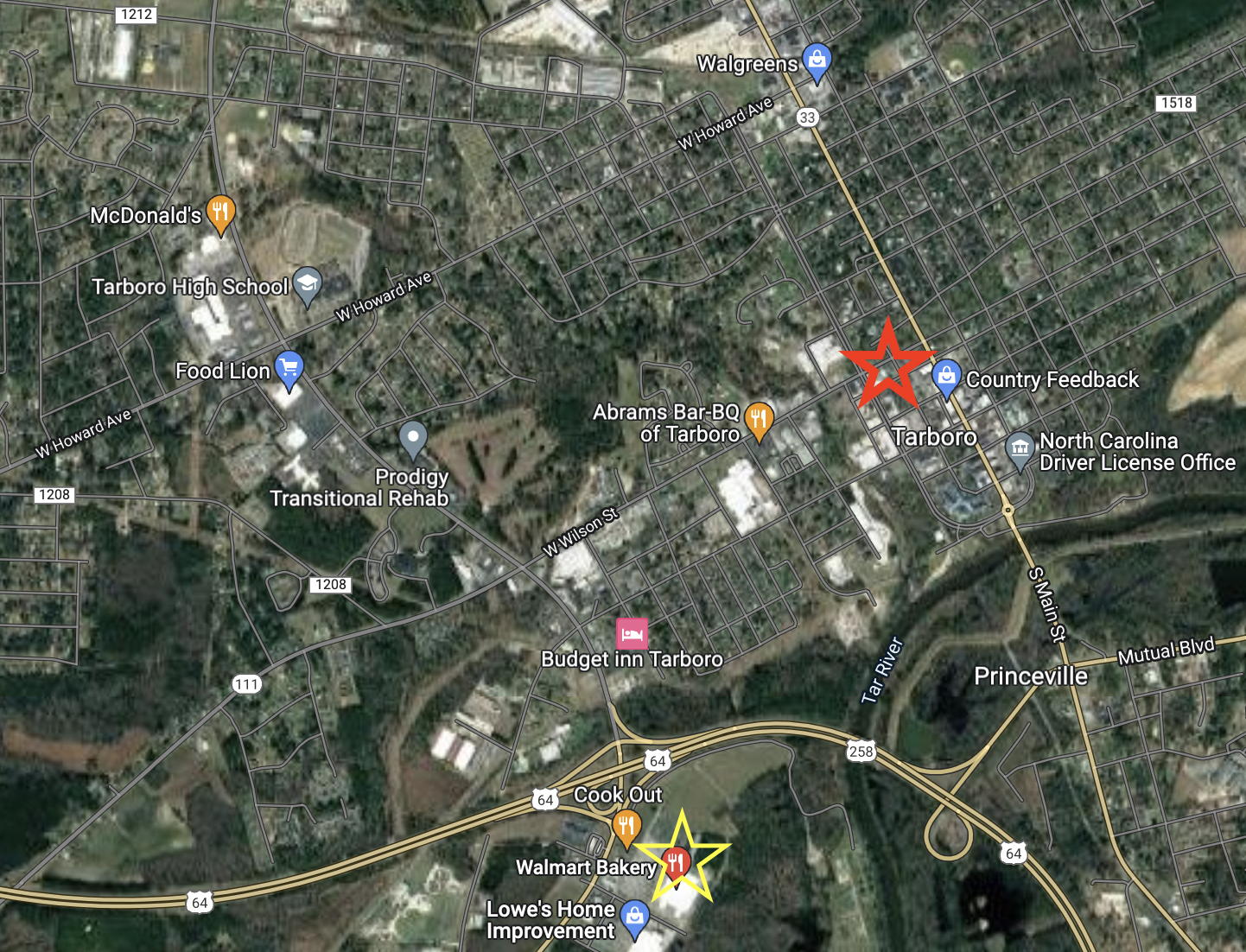
24hr Pharmacy/ Birth Control Vending Machines
While we, ourselves have not had a reason yet to take advantage of these, you find access to over-the-counter remedies, medicines, ointments, and birth control widely available here via 24hr vending machines. There are more of them, in fact, than those selling soda or packaged food. Especially those offering birth control. Because here, they don’t pretend that sex, especially sex among young people is only for married couples, not casual pleasure (sorry abstinence, but you deserve it). So have a condom. Have a ribbed one if you prefer. No partner? No problem. Consider lube and a toy or two. Now go on, get outta here. Enjoy, but be kind, respectful and equal about it.
Sidenote: For you readers with teenage children, here’s a great podcast about the culture of sex in America. Give a listen and I think you’ll agree, it’s time to change our tune.
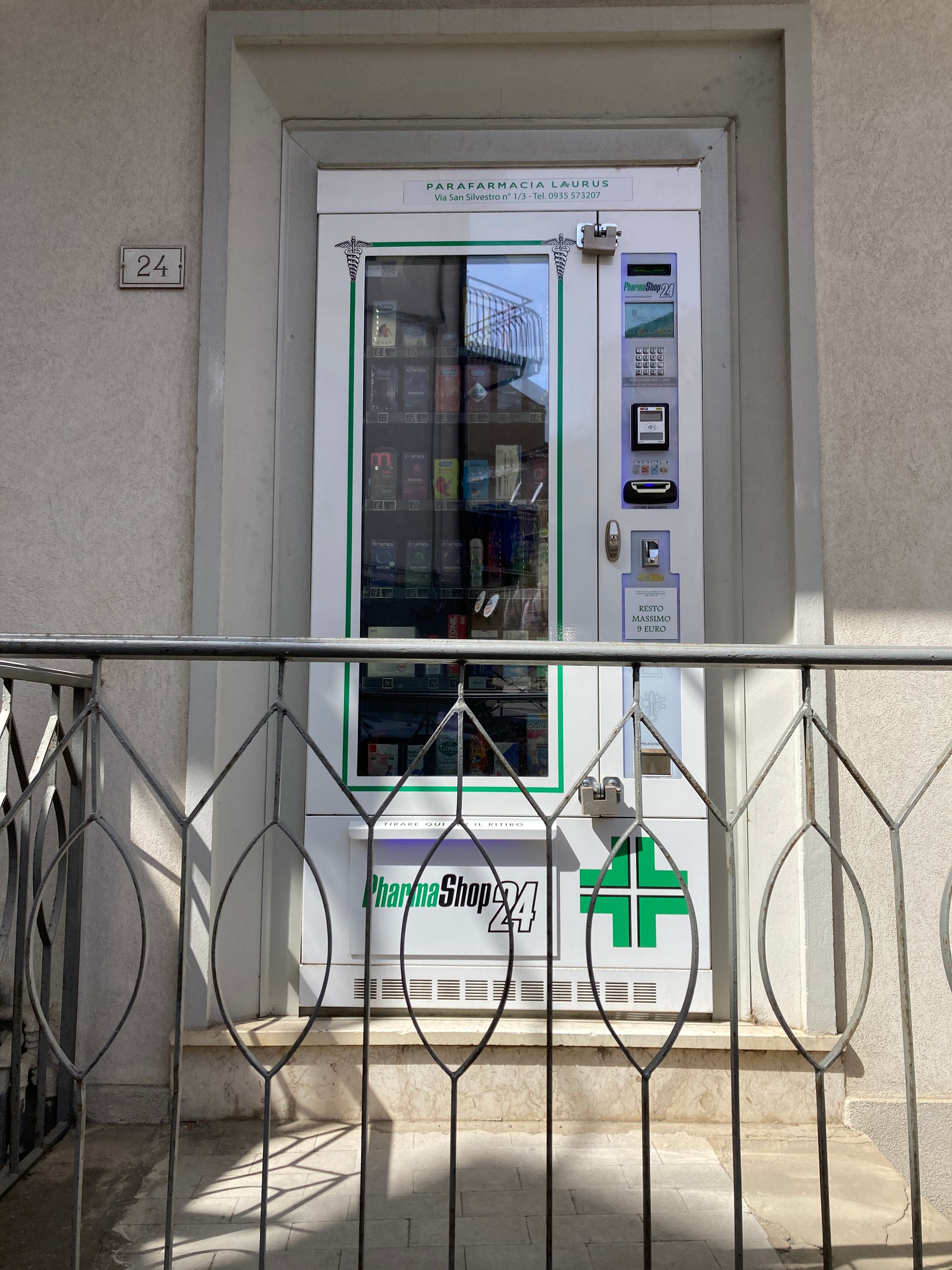
Passeggiata
First, what is it. Passeggiata (pronounced: pass- eh-dj-ah-ta, with long ‘As’ like in ‘apple’) means simply, to go on a walk (Fare una passeggiata), and while you may have it heard that it happens at the same time every day (it doesn’t. We went on one recently at one a.m.), or that it’s a tradition that helps women meet future husbands (it’s not, and also how ridiculous). It’s just a walk, outside, often with others, but not necessarily, with little other purpose in mind than, well, putting one foot in front of the other.
I wrote recently how walking has been a part of our lives for decades now, from road marches (blah) to German volksmarches (awesome) to after- or pre-work walks to and from our bakery. Many people saw us on the last of these and would compliment us for it. Our hope in those moments was that maybe our walk had inspired someone else to take a trip around the block, but I doubt it. Again, I think it’s a culture thing, or maybe it’s just a car thing. Back in Tarboro we used to talk about the lack of parking on main street and concluded that it wasn’t actually a parking problem but a walking problem. Whatever the reason, maybe, if in America we had a word as accurately descriptive and beautifully poetic as Passeggiata, more people would look forward to lacing up their sneakers and taking a stroll.
The Food Culture
I feel like I’m beating a dead horse, but the food here. Incredible and inspiring! Here’s a week-at-a-glance of our recent menu.
o Monday: Pasta with raw tomatoes, onions, garlic and basil
o Tuesday: Arancini with crudité (all veggies come curtesy of a local farmer) and chips
o Wednesday: Cheese (Sicilian. Too many to list), jam, prosciutto, bread, pesto, caponata (boards like this have been a favorite of ours for some time as they are delicious and super easy to put together)
o Thursday: Pasta with tomatoes (it’s summertime after all), black boar sausage (locally-sourced), onion and oil.
o Friday: Leftovers (in case we get invited out somewhere or are just too tired to make something!)
o Saturday: Pizza on the piazza!
o Sunday: Pasta again. A version of puttanesca.
A quick word about pasta. The pasta here is not like the pasta of other lands. I don’t know the real reason why (hope to get to the bottom of it one day), but one that seems to get called out over and over has to do with the preferred type of wheat for making pasta, which is durum.
In Sicily, they grow primarily durum wheat, so if you’re looking at a bag of pasta chances are good you’re looking at what once was locally-grown durum wheat. Farms in America also grow durum wheat, but it’s only 4% of the country’s total production, so, while you might be looking at durum wheat on that label of Barilla, which according to their own website is manufactured in the U.S., it’s a good bet that the wheat didn’t come from any field even close to the facility. It came from Italy or even Australia.
I don’t know for sure if flavor or, more importantly, the health benefit of food is impacted by long-distance travel but I would be willing to bet this week’s pizza dinner that it’s not the best thing for it. And, now even if the impact was negligible, with climate change showing its teeth, it probably time to drop that particular manufacturing model for something more sustainable.
Siesta!
Here we are at the final extraordinary thing we’ve discovered about Sicily. I feel it needs no introduction as sociology teachers, or whatever they might be called these days, have been talking about this particular human social institution for a hundred years or more. At least I think that’s where I first heard about the infamous Siesta. The mid-day break. Society’s nap time. Also for eating, running errands (but to where?), having sex, and otherwise just relaxing. Why this hasn’t caught on in other countries, I haven’t a clue. Because of capitalism, I guess.
But these days we’re seeing the need for a more person-centric attitude toward work, especially in America, where for some asinine reason we can now label people who do the job they were hired to do as quiet quitters because they aren’t doing more than that, all that above and beyond and other bullshit, to make more money for their employer, which makes it sound like someone certainly needs a fucking nap.
Other than me.
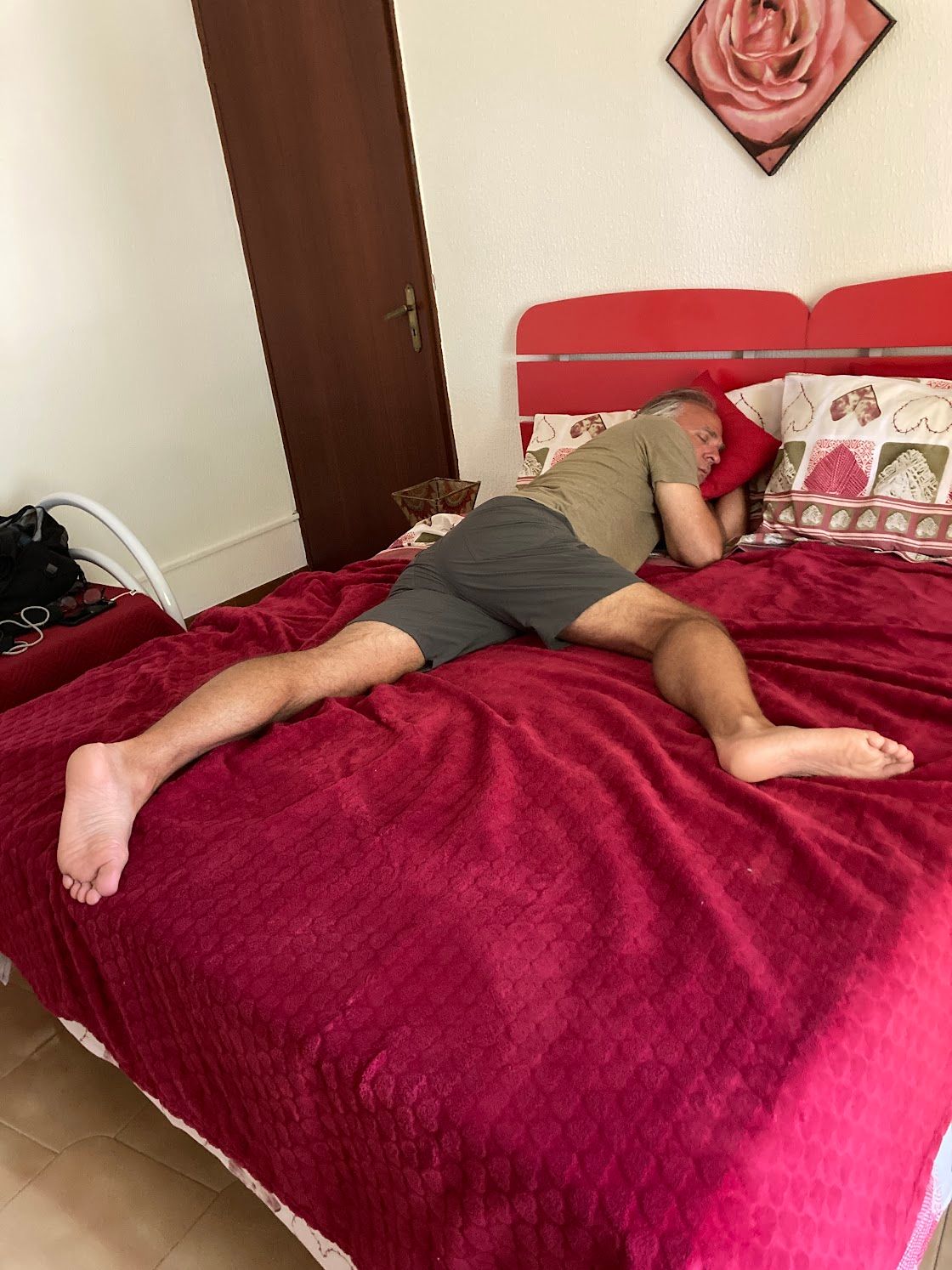
Thanks for reading a long. If you’re of the mind now to sit down to a bowl of pasta and would consider upgrading to a paid subscription, I’d be happy to share a few recipes. Just ask.
Next week I’ll be covering some of the non-extraordinary things we’ve found since moving here, of which will include—shocking! for those of you who know me well and may have noticed what was missing from this list—the refreshing and delightful bidet. Find out why next week.
Thanks and as always, alla prossima!


